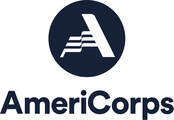0 Comments
By Edward Pride, Preserve WV AmeriCorps
With its doors closed, contents in storage, and contractors walking the halls; the antebellum mansion known as Waldomore, located in Clarksburg, has temporarily closed for an extensive renovation. This renovation is part of a revitalization of Waldomore and its collections. The staff has turned their attention to several crucial matters: developing guidelines for new donations, bringing organization and order to the building’s contents, and reviving the building’s museum function. Permanence requires adaptation. Waldomore was built in 1842 to be the residence of Waldo P. Goff, a successful investor and businessman. The building was enlarged in the 1890s by his daughter, May and her husband Richard Lowndes. Childless and in possession of a landmark property with no clear future, May gave the mansion to the city of Clarksburg in 1930 for use as a library and museum. In the spring of 1931, the mansion underwent a series of modifications before opening as the Clarksburg Public Library’s new home. In 1975, the Library moved to its present building next door and Waldomore took on a new role. The ground floor became a meeting and performance space, with antique furnishing and display cases. The second floor would become home to the library’s regional history and genealogy department. In 1990, an archival collection, the papers and publications of UFO writer and publisher Gray Barker, would be added to Waldomore’s holdings. As the collections grew deterioration of the aging building set in, the charm of the building combatted the sense that things were amiss. Renovation and Opportunity A leaking roof and an outdated electrical system were the largest issues plaguing the building. A new roof in 2013 brought an end to the continual shifting of materials to avoid damaging leaks. Roof replacement prevented further damage but Waldomore still had extensive plaster and paint damage throughout the second floor as well as the electrical system. But a new issue arose: organization of the materials on the second floor In October 2015, Clarksburg was awarded a grant by the WV Division of Culture and History and the National Endowment for the Arts, with approval by the WV Commission on the Arts, to replace the electrical system, repair plaster damage, paint, and install new carpeting. This grant provided a unique opportunity to reorganize Waldomore as the complete removal of all contents was necessary for the renovation. Past plans to reorganize the collection had not envisioned the scale of working on the entire contents at one time. Hidden Gems: Collection Material Over the course of the packing process, a large number of the materials discovered were expected such as the wealth of photographs featuring people and locations across North Central West Virginia, negatives from a local photography studio, and numerous artifacts including a box of plant fossils. One of the unexpected discoveries was a large quantity of fine china, including sets from England, France, Bavaria, and beyond. A few pieces had been on display, but significant portions of each set were stored throughout the building wherever space was available. Each time the staff thought they had packed the last piece china, another location would produce more. The most meaningful discoveries were made along the way. The staff uncovered a group of Harpers’ Weeklies and Harpers’ Illustrated Histories of the War of the Rebellion, both of predated 1900. The staff also discovered items that belonged to Richard and May Lowndes, the previous owners of the mansion. From May, a large Staffordshire soup tureen, and from Richard, a group of books complete with bookplates featuring Waldomore. Moving Forward The staff has a new appreciation for the diversity of Waldomore’s holdings. When this process began, we believed that most of the materials would be books, family histories, and genealogy files. We did not anticipate the amount of artifacts and archival materials that were uncovered. Our original plan to create a strong regional history/genealogy library with a few artifacts and 2 archival special collections would need to be altered to include a much larger archival storage area. This has led to a complete redesign of the collection storage areas on the second floor. We have been designing the new areas to maximize their usability and capacity. As the redesign continued, they staff had to identify the appropriate storage conditions for various materials and ensure that they are met. The most visible additions are the two map cabinets to properly store and protect oversize posters and maps. As we have been working on the physical space in Waldomore, we are also revising and evaluating the policies and procedures for Waldomore’s collection. We have reviewed Waldomore’s mission, geographic range of the collection, and the collecting policy to update and streamline these to reflect the current and future nature of the materials in the Collection. Lastly, the staff has developed a system for arranging and organizing collection materials as they return to the building. All incoming materials must be verified against the library’s catalog. Materials that exist in the catalog will be given new labels; uncatalogued materials will be processed, cataloged, and given a label. Once complete, Waldomore will have its first uniform arrangement system; which can be maintained as the collection grows. As the renovation draws to a close, Waldomore finds itself entering a new chapter. With freshly renovated spaces, redesigned storage areas, and cataloged materials, when Waldomore reopens its doors, it will be with a new appreciation of its collection and a revitalized mission. If you would like to see the transformation, please visit Waldomore’s blog, www.waldomore.wordpress.com, or our Facebook page, Historic Waldomore.
In President Trump’s FY2018 budget, he proposes to eliminate funding for the National Heritage Areas. The 49 National Heritage Areas across the country – two of which are in West Virginia (Wheeling and Coal) – preserve and revitalize cultural, historic and natural resources, delivering recreational and educational opportunities to visitors, residents and entire regions. Through innovative public-private partnerships, National Heritage Areas have effectively leveraged federal resources, attracting an average of $5.50 of private funding for each dollar appropriated.
Heritage Areas have a proven record of fostering job creation and advancing economic, cultural, historic, natural, and community development. In addition to creating jobs, National Heritage Areas generate valuable revenue for local governments and sustain communities through revitalization and heritage tourism. Lastly, Heritage Areas have undergone rigorous independent evaluations by the National Park Service which document the program’s worth. Please join PAWV in calling your Congressmen by March 24 and request that they ask appropriators provide robust funding for the National Heritage Area program in the FY 18 budget. Robust funding for this critical initiative will enable communities and regions to effectively tell the stories of their past for the benefit of present and future generations. District 1 – Congressman David McKinley – (202) 225-4172 District 2 – Congressman Alex Mooney – (202) 225-2711 District 3 – Congressman Evan Jenkins – (202) 225-3452 You can also encourage your Congressman to co-sponsor HR 1002 – National Heritage Area Program Bill, which would establish a designated program for National Heritage Areas within the National Park Service, including clear criteria for designation and evaluation. According to the bill sponsors, Congressmen Charles Dent (R-PA) & Paul Tonko (D-NY), “National Heritage Areas are considered one of the Department of the Interior’s most cost effective initiatives, relying on a public/private partnership in which every federal dollar is matched with an average of $5.50 in other public and private financing.” Through a generous sponsorship from BB&T Bank, PAWV and the National Trust for Historic Preservation have organized for the National Development Council to bring the first of its two-part Historic Real Estate Finance Professional Certification series to Fairmont – May 8 – 12, 2017.
Register at: https://nationaldevelopmentcouncil.asapconnected.com/classdetail.aspx?org=1364&pk=797371 Entitled HRE247, this five-day intensive course offers a step-by-step look at the real estate development process from the perspective of lenders, developers and investors. Through case studies taken from real projects, participants analyze real estate development projects—retail, office, residential, mixed-use—using the rates of return required by lenders, developers, and investors, and determine the appropriate amount of public sector financing needed to make projects feasible. Public sector financing tools and techniques (including Rehabilitation Tax Credits), which are designed to attract, leverage, and complement private financing, are utilized to maximize equity while minimizing the amount of public investment. Specific topics include:
The course will be May 8 – 12, 2017 at the Falcon Center on Fairmont State University’s campus. The cost of registration is $250.00. Contact PAWV at [email protected] for a special discount code. Register today at https://nationaldevelopmentcouncil.asapconnected.com/classdetail.aspx?org=1364&pk=797371 Lodging Options: Dormitory lodging on Fairmont State University campus is available for $11/night. There will be access to a bathroom and kitchenette. You will need to bring your own bedding, towels, and toiletriest. Contact Danielle LaPresta at dlapresta@pawv.org or by calling 304-345-6005 to secure this option by April 23. Local Hotels: Clarion Inn https://www.choicehotels.com/west-virginia/fairmont/clarion-hotels/wv102?hotel=WV102 Fairfield Inn http://www.marriott.com/hotels/travel/ckbfi-fairfield-inn-and-suites-fairmont/ Hampton Inn http://hamptoninn3.hilton.com/en/hotels/west-virginia/hampton-inn-fairmont-CKBFMHX/index.html Holiday Inn Express https://www.ihg.com/holidayinnexpress/hotels/us/en/fairmont/ckbfm/hoteldetail
National service is too powerful an idea to be eliminated. In West Virginia alone, the West Virginia Commission for National and Community Service (dba Volunteer West Virginia) administers 12 AmeriCorps State projects and 2 AmeriCorps VISTA projects statewide. These programs support about 900 AmeriCorps members annually in West Virginia. Preserve WV AmeriCorps and Appalachian Forest Heritage Area AmeriCorps programs provide direct service to preserve West Virginia’s heritage, while other programs address health and food security, conservation, veteran’s programs, and education support.
Volunteer West Virginia is working with the WV Council of Churches, Step by Step, First Choice the Harrison County Family Resource Network and other partners to develop an understanding of how AmeriCorps can be part of the solution to WV’s opioid overdose epidemic. Last year AmeriCorps programs supported 472 local sites in West Virginia by placing AmeriCorps members, coordinating service projects, and recognizing volunteers. Their work supports hundreds of nonprofit partners and volunteers working together to solve some of West Virginia’s most challenging issues. In 2016, PAWV’s 19 Preserve WV AmeriCorps members served over 24,950 hours helping 17 sites in local communities. They preserved 33 historic assets and engaged 666 community residents in volunteer projects for Main Street development, historic preservation, and heritage tourism. Each Preserve WV AmeriCorps completes projects to enhance and build upon activities at their site. Their service activities are designed with site and community needs in mind. Urge continuation of and full funding for the Corporation for National and Community Service (CNCS), and for AmeriCorps. Call your Congressional Leaders today! District 1 – Congressman David McKinley – (202) 225-4172 District 2 – Congressman Alex Mooney – (202) 225-2711 District 3 – Congressman Evan Jenkins – (202) 225-3452 Senator Shelley Moore Capito – 202-224-6472 Senate Joe Manchin – 202-224-3954 In Governor Justice’s FY2018 Recommended Budget (SB 199 and HB 2018) all Division of Culture & History programming that comes from the state Lottery Education Fund (fund 3534 in the budget) will be eliminated. Programs that are made possible through the state Lottery Education Fund include the following appropriations (numbers reference line items in the budget):
Defunding these will cause a major detriment to economic development and cultural heritage tourism in West Virginia. What you can do to help? Currently the Senate Finance Committee and House Finance Committee are working on their own FY2018 budget proposals. Contact committee members and ask them to include funding for these line items in their budget proposals. You can find the contact information for the Senate Finance Committee members at http://www.legis.state.wv.us/committees/senate/SenateCommittee.cfm?Chart=fin and House Finance Committee members at http://www.legis.state.wv.us/committees/house/HouseCommittee.cfm?Chart=fin When you contact committee members, you can ask them to fully fund the Division of Culture & History. Offer specific information about what will be lost without this funding. Historic Preservation Grants keep roofs on historic buildings. Private, government, and nonprofit historic building owners can apply for these grants. All properties listed individually on the National Register of Historic Places and listed as a contributing building in a National Register Historic District are eligible. Every dollar in grants leverages an equivalent dollar amount in private and personal funds. These grants can be combined with tax credit incentives, as well. Arts Programming supports activities around the state like the Huntington Symphony, WV Public Theater, and local community arts activities, as well as Festivals from Vandalia Gathering and Appalachian String Band Festival at Clifftop, to Mountain State Forest Festival and fairs in small communities, would all lose funding through the Governor’s recommended budget. These programs utilize state funds to leverage federal, community and private dollars for programs that support jobs, bring visitors to WV tourism destinations, and enhance quality of life that attracts new business. If you want to protect arts and historic preservation funding, please contact Finance Committee members today and ask them to fully fund the Division of Culture & History. |
News and NotesCategories
All
Archives
May 2024
Subscribe to our mailing list to receive e-news updates on historic preservation news and events in West Virginia.
|
Get Involved |
Programs |
Contact UsPreservation Alliance of West Virginia
421 Davis Avenue, #4 | Elkins, WV 26241 Email: [email protected] Phone: 304-345-6005 |
Organizational Partners:
© COPYRIGHT 2022 - PRESERVATION ALLIANCE OF WEST VIRGINIA. ALL RIGHTS RESERVED.

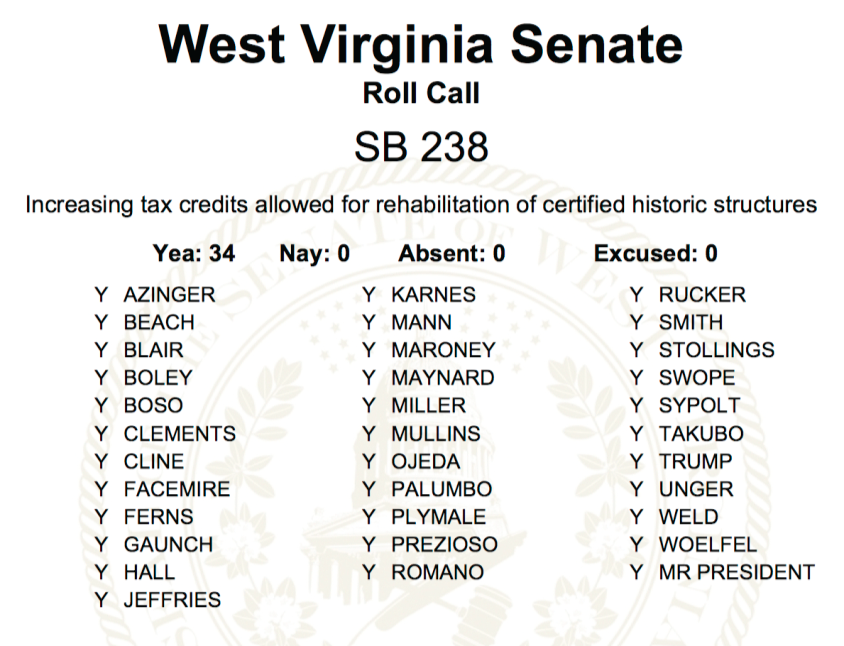
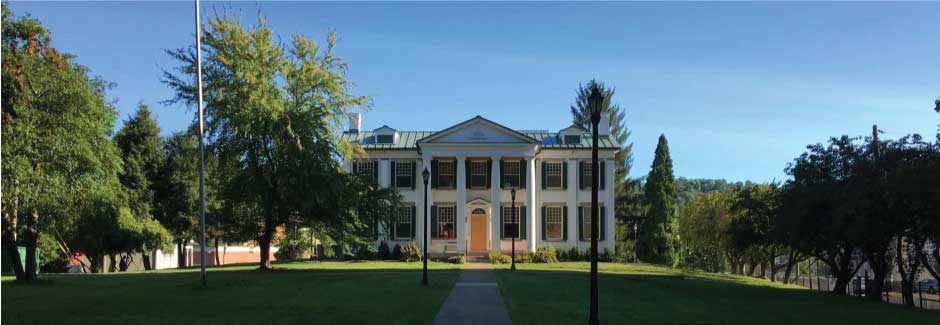
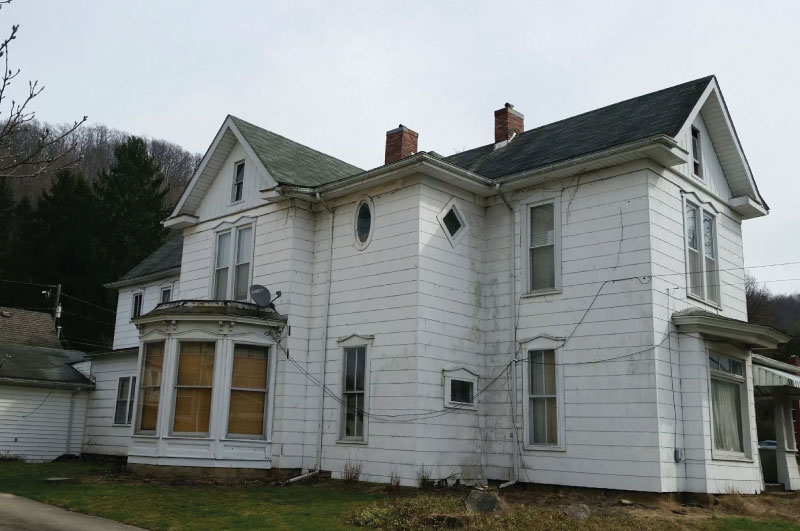
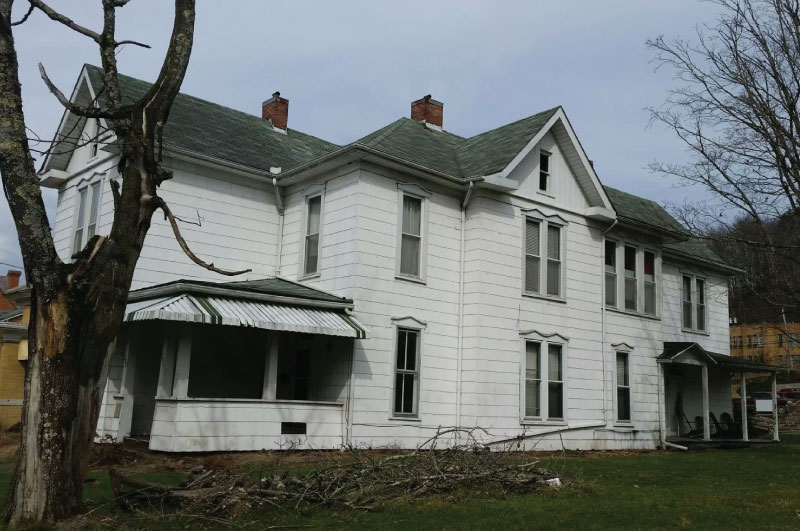
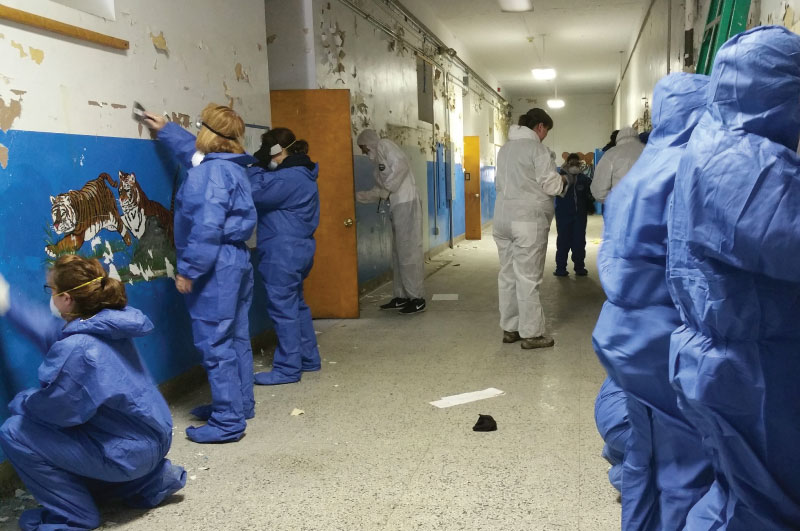
 RSS Feed
RSS Feed

